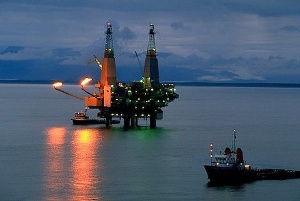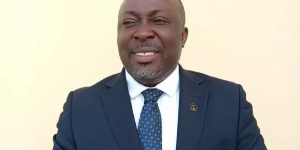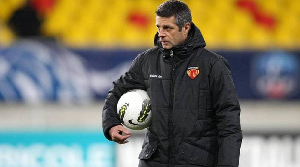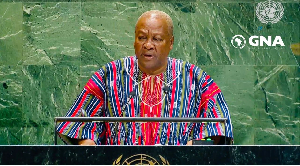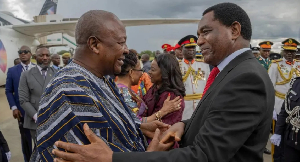The Jubilee partners held a meeting at the Energy Ministry yesterday to discuss the nagging issue of getting the gas by-product out the way of operators of the field for utmost oil production.
The meeting, B&FT learned, had in attendance executives of Tullow Oil, the biggest shareholder, and field operator Kosmos Energy as well as the Ghana Gas Company, GNPC and Energy Ministry itself.
“We are going to have a meeting today; tomorrow, we are going back [to the gas project site] again to see what the situation looks like on the ground, because we want to ensure that we deliver this project as soon as possible,” Edward Bawa, Communications Manager at the Energy Ministry, told the B&FT on Thursday.
When the B&FT visited the Ministry yesterday morning, the Kosmos Energy team -- led by its Vice President and Country Manager Ken Keag -- had already arrived for the meeting.
“The truth of the matter is that any delay in bringing the gas project onstream has the potential to affect, first, the cost of power generation. This is because if we have reliability of gas it directly affects even industries and households. The other aspect is that because we have a ‘zero flaring’ policy, the operators of Jubilee Field are forced to re-inject the gas. After a particular level there is a challenge, and it affects oil production,” Mr. Bawa said.
Indeed, Tullow Oil has revised to 100,000 barrels of oil per day the production forecast for the full year 2014, giving indication that the target production rate of 120,000 barrels per day may not be reached.
Earlier projections had suggested that the field was on track to hit the target by June 2014. Average production at the end of 2013 was pegged at 110,000 barrels per day.
A release from Kosmos Energy last week said the revision of the production forecast was due to “gas handling challenges,” adding that “achievement of the revised production forecast is contingent on the timely resolution of these matters”.
As the parties meet over the said matters, the Energy Ministry is cautious about giving any further deadlines for completion of the gas project.
“The president himself has been very concerned about it, and he has directed that whatever it takes, in terms of finances, we should find a way of bringing the gas onstream. So it is a worry to all of us, and hopefully this year we should be able to deliver the gas. I mean, we do not have a reason not to,” said Mr. Bawa.
The US$850million gas infrastructure project, which is dependent on the controversial China Development Bank (CDB) loan, has been bogged down by funding challenges as several completion deadlines have been missed.
Business News of Friday, 24 January 2014
Source: B&FT

